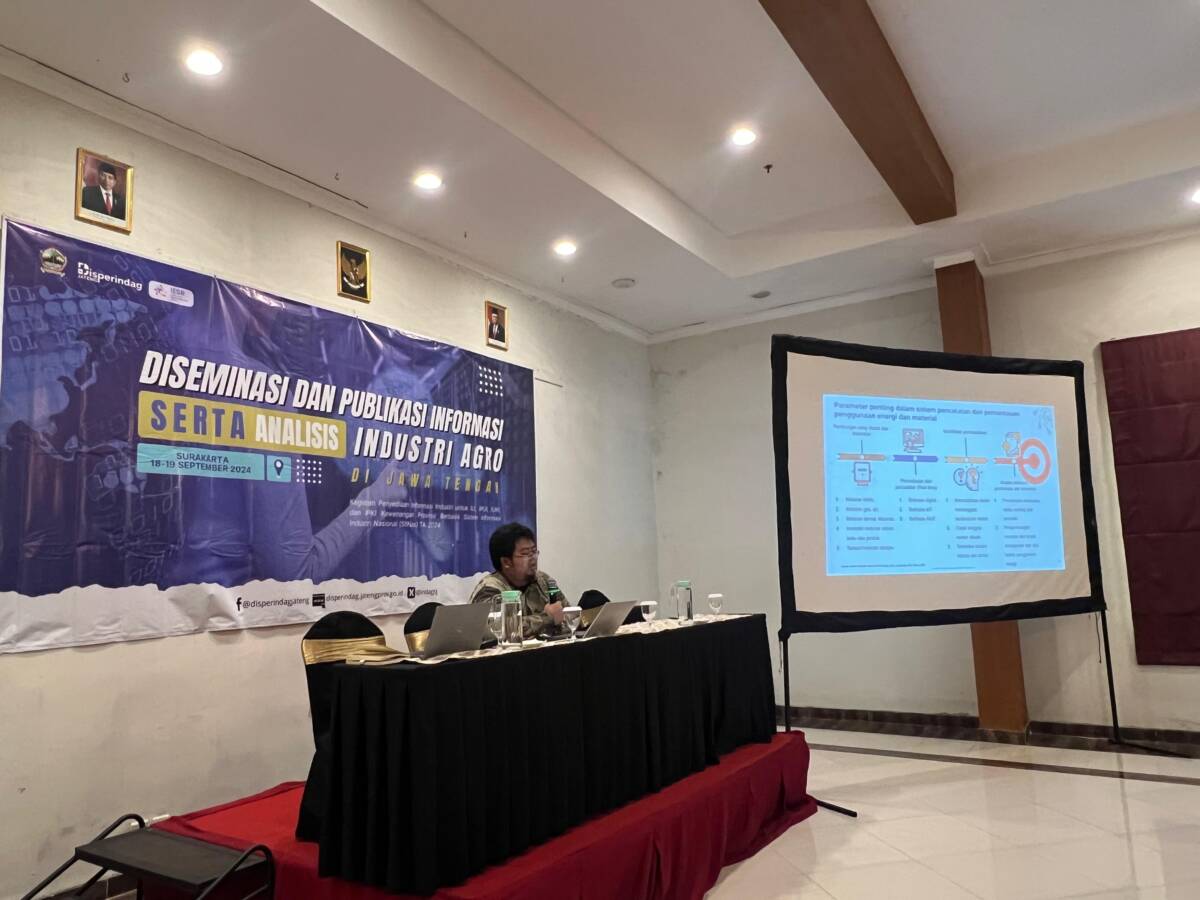Surakarta, September 19, 2024 – The industrial sector significantly contributes to the rise in global greenhouse gas (GHG) emissions. It is estimated that in 2022, the industrial sector in Indonesia will produce 430 MtCO2e of emissions, marking a 30 percent increase from the previous year. The majority of these emissions, approximately 60-70 percent, stem from energy use sourced from direct combustion and electricity produced using fossil fuels, according to the Indonesia Energy Transition Outlook (IETO) 2024 study. Farid Wijaya, Senior Analyst at the Institute for Essential Services Reform (IESR), disclosed this information during the Dissemination of Green Industry Decarbonization Efforts for Small and Medium Industries (SMIs) event in Surakarta, Central Java, on Thursday (19/9/2024).
“Emissions from industrial processes and product use (IPPU), which mostly come from the cement, ammonia, iron, and steel industries, also contribute significantly to the increase in emissions. Without serious decarbonization efforts, industrial sector emissions could at least double by 2050,” Farid said.
Furthermore, Farid revealed that the green industry ecosystem in Indonesia is starting to develop even though it is still at an early stage. By 2024, at least 95 industrial green industry certificates in various sectors had obtained green industry certification, while at least three green industrial areas are in the development stage as pilot projects.
“The road map for decarbonization of the industrial sector is being prepared and is expected to encourage the acceleration of green industry development. However, the challenges faced are considerable. About 60 percent of decarbonization technologies are not yet commercially available, and only 35 percent are in the early adoption stage, citing data from the International Energy Agency (IEA),” Farid said.
Farid believes that the government plays a crucial role in supporting the development of low-carbon technologies through regulations, policies, research, and industrial capacity building. Decarbonization technology options such as resource efficiency, energy efficiency, industrial electrification, low-carbon fuels, carbon management, and carbon capture and storage technology (CCS/CCUS) should be promptly adopted in the industrial sector. Each industry needs to customize these options to promote proper power and usage.
“However, challenges in adopting low-carbon technologies exist, such as high initial investment and limited financial support. However, some approaches can be implemented, such as energy efficiency and conservation and waste utilization for circular economy value. In addition, cross-sectoral cooperation between industry, government, and research institutions is needed to accelerate the transition to a green industry,” Farid said.
The Institute for Essential Services Reform (IESR) organized the green industry decarbonization dissemination event in collaboration with the Central Java Provincial Office of Industry and Trade (Disperindag) for two days on 18-19 September 2024. 35 participants from Small and Medium Industries in Surakarta and local government representatives attended.

